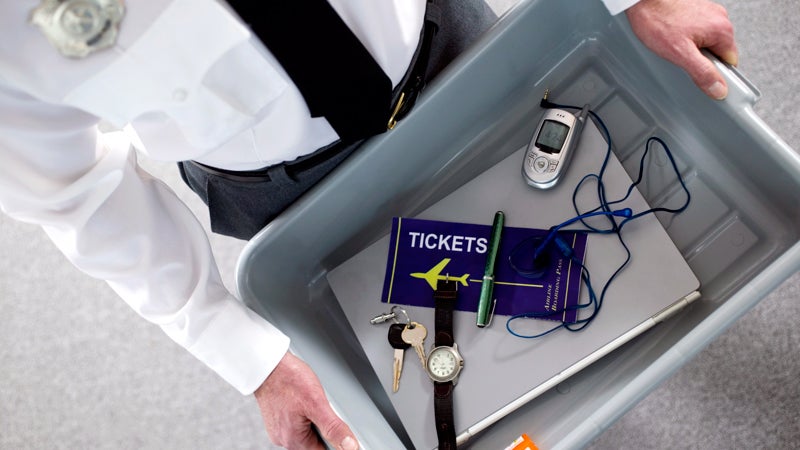Digital devices store every detail of our lives—from business transactions and grocery lists to messages, both sweet and unsavory, meant only for our partners. Though Americans, in all their Fourth Amendment bravado, might consider themselves immune to unreasonable search and seizure of their devices, they have few rights to digital privacy at border crossings.
Border agents in and have asked travelers to relinquish their devices. But even U.S. citizens returning home can be asked to surrender their laptops for searches. Inspections might involve files stored on the hard drive, as well as any information transmitted through that device, including email, social media interactions, or other online accounts. In the name of homeland security, a recent upheld that even “reasonable suspicion” wasn’t required for Customs and Border Protection to comb through digital files. As the Electronic Frontier Foundation points out in its , “For doctors, lawyers, and many business professionals, these border searches can compromise the privacy of sensitive professional information.” It goes on to add that, “for the rest of us, searches that can reach our personal correspondence, health information, and financial records are reasonably viewed as an affront to privacy and dignity and inconsistent with the values of a free society.”
Sure, travelers may refuse to hand over devices or to share passwords, but border agents can perceive such actions as antagonistic, which could lead to involved questioning, being denied entry, and even arrest. Best to avoid that scenario, if at all possible.
For travelers concerned about protecting their privacy, here are a few strategies the EFF recommends:
- Make regular backups. Border agents may decide to search your device at the crossing, or to detain it for further inspection. Backups will protect your data from being lost and ensure access to it without the physical device.
- Minimize the data on your device. If you don’t need it during your journey, and will have the bandwidth to download data once you arrive, you may be able to travel with a blank device. “It’s gradually becoming easier to store more data online instead of locally on a device,” says Seth Schoen, a senior technologist at the EFF. “While many of the services that facilitate this have their own quite serious privacy concerns, and the government has also claimed the right to at least try to read communications that are crossing the border over the Internet, storing data online can alleviate some concerns about physically transporting it over the border on a hard drive.”
- Encrypt and protect your data with a password. (Of course, this strategy is less useful if you feel you’ll quickly relinquish your code if questioned.)
For more information on interacting with border patrol agents, as well as on the technological strategies listed above, .


